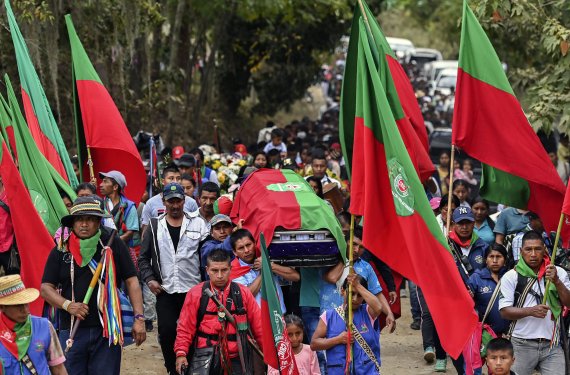Paola Chaves saw from close by how the Indigenous Guard acts in a crisis situation when two people were shot dead. Photo: ANP/Hollandse Hoogte
Choosing non-violence is a striking move in a country with a lot of armed conflicts, hold-ups and kidnapping. While on paper there has been a peace agreement between the FARC and the Colombian government for the past three years, the violence has certainly not stopped. The south-western province of Cauca in particular, where Chaves did her research, still has numerous conflicts. About 100,000 Nasa live in the area; they are an indigenous people to which the Indigenous Guard belongs.
The Nasa’s non-violent strategy sets an example for others and the Indigenous Guards are often seen as heroes. Chaves wants to put that into perspective, though. ‘They are just ordinary people. They don’t always agree with one another by a long way. They arrived at their policy through endless discussions with each other, taking the group’s norms and values as their starting point. It is often said that a revolution inevitably has victims. But the Nasa just don’t see killing people as an option. If there is a problem, they organize daily meetings to talk about the best solution. Shared values and lessons from their own history are the determining factors then.’
Chaves says it was not easy to do research in a dangerous area. ‘I often felt unsafe. My initial reaction was usually: I have to get out of here. It was good to see that the Indigenous Guards were scared too sometimes. But when there is an emergency situation, they prioritize the group over the individual. And that works. Together they are strong. They are respected and they are one of the few peoples in Colombia with their own land and administration.’

